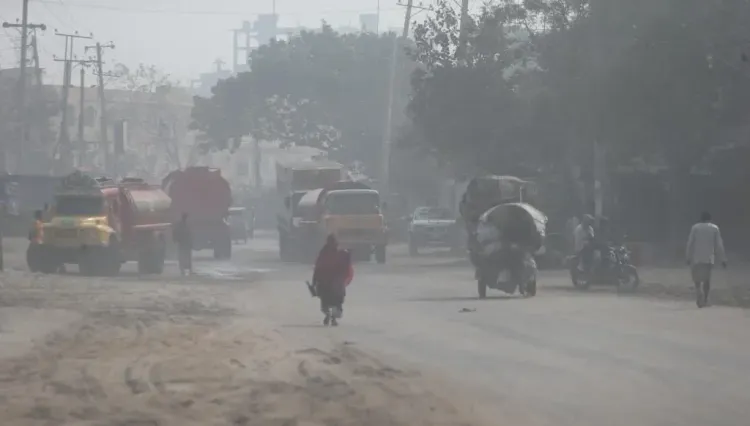Dhaka Ranks as the Most Polluted City Worldwide Today

Synopsis
Key Takeaways
- Dhaka's air quality ranked as 'hazardous'.
- AQI scores indicate severe health risks.
- Other cities like Beijing and Tashkent follow Dhaka.
- Air pollution causes significant deaths in Bangladesh.
- WHO emphasizes global air quality monitoring efforts.
Dhaka, March 1 (NationPress) On Saturday morning, Dhaka, the capital of Bangladesh, achieved a concerning milestone by recording the most polluted air quality globally. The air quality was classified as 'hazardous' according to the city’s pollution ranking.
An Air Quality Index (AQI) reading between 151 and 200 is deemed 'unhealthy', while scores of 201-300 are categorized as 'very unhealthy', and scores of 301-400 fall into the 'hazardous' category. This dangerous air quality poses significant health risks for residents in Bangladesh.
Following Dhaka, Beijing in China, Tashkent in Uzbekistan, and Baghdad in Iraq ranked second, third, and fourth, respectively, with AQI scores of 238, 220, and 179, as reported by United News of Bangladesh.
The World Air Quality Report, published by the Swiss organization 'IQAir', provides insights into air quality globally. The AQI is crucial for relaying daily air quality status, indicating how clean or polluted the air is and the potential health effects associated with it. The AQI measures health impacts that may occur within hours or days after exposure to polluted air.
The AQI is derived from five primary air pollutants: particulate matter (PM10 and PM2.5), carbon monoxide, sulfur dioxide, nitrogen dioxide, and ozone.
Bangladesh continues to face significant air quality challenges. A study by the Centre for Research on Energy and Clean Air found that air pollution is responsible for approximately 102,456 deaths each year in Bangladesh, as reported by The Daily Star.
According to the World Health Organization (WHO), air pollution causes millions of deaths globally every year. WHO data reveals that 9 out of 10 people inhale air with high pollutant levels. The organization collaborates with nations to monitor air pollution and enhance air quality. From urban smog to indoor smoke, air pollution remains a severe threat to health and climate.





